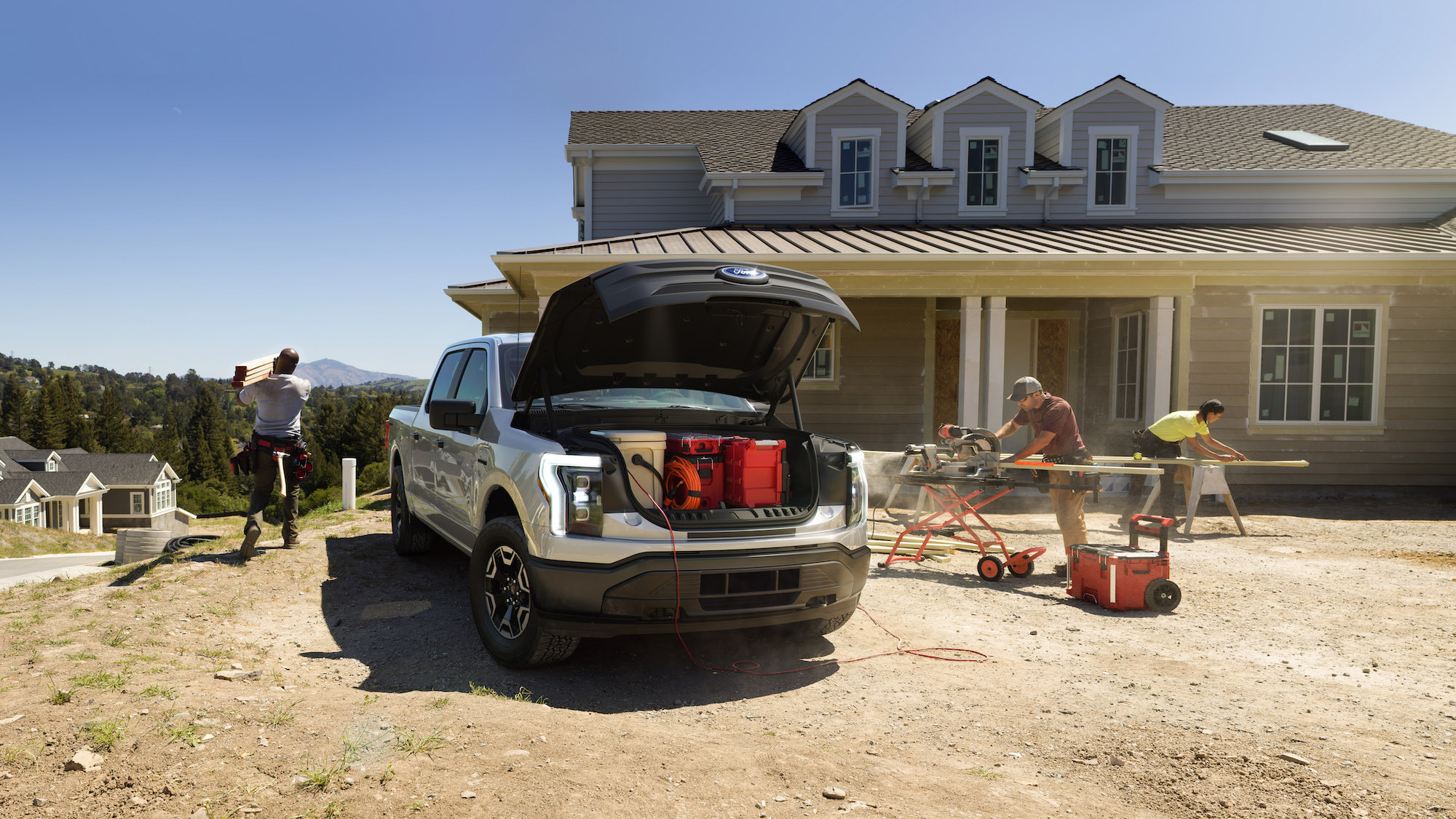

The White House announced on Thursday morning that President Biden will be signing an executive order that aims to have half the new vehicles sold in the US by 2030 be zero-emission. That includes cars that run purely off batteries, are plug-in hybrid electric, or are fuel-cell electric, meaning it can be powered indirectly by hydrogen.
“The future of the auto industry is electric — and made in America,” Biden said in a tweet earlier today. Along with the executive order, he noted that he would be “unveiling steps to reverse the previous administration’s short-sighted rollback of vehicle standards.”
This move is part of what the Biden administration calls its “Build Back Better Agenda.” The agenda, in addition to the ongoing bipartisan infrastructure deal, will pursue investments in capabilities such as a national network of electric vehicle charging stations, manufacturing, domestic job incentives, and innovative updates to current electric vehicles. Last month, the Department of Commerce said that there was $3 billion available in the American Rescue Plan funds that can be directed to the domestic electric vehicle industry.
A recent survey found that close to half of Americans are open to the idea of buying an electric car, and already, automakers like Ford have reported huge increases in electric car sales.
Based on a statement from the White House, the executive order is also expected to address the development of long-term fuel efficiency and emissions standards in an effort to tackle rising public health and environmental problems. The administration will reportedly seek collaboration from the Environmental Protection Agency and Department of Transportation to advance related policies. The proposed changes can save the average consumer “up to $900 over the life of the vehicle in fuel savings,” the statement says.
The White House says multiple factors over the last decade have paved the way for EVs to take off, and one of them is dropping battery costs. But the transition will no doubt be a huge undertaking, which means that the government will need to work in conjunction with the auto industry. “The wholesale conversion of the transportation system and electric power system are World War II-scale enterprises, and it’s just starting,” Michael Gerrard, director of the Sabin Center for Climate Change Law at the Columbia Law School told the New York Times.
[Related: Tesla’s new adapter will let other car companies use its Fast Charging stations]
American automakers Ford, GM, Stellantis, and the United Auto Workers (UAW) have signed on to help the Biden Administration realize its clean emissions goal.
Earlier this year, General Motors announced that it would drive down passenger car emissions by 2035 and become carbon-neutral across its operations by 2040. Ford, GM and Stellantis said in a statement that they aspire “to achieve sales of 40-50 percent of annual US volumes of electric vehicles by 2030 in order to move the nation closer to a zero-emissions future consistent with Paris climate goals.” BMW, Honda, Volkswagen, and Volvo echoed those sentiments in similar ways.
“Along with the infrastructure investments currently under consideration in Congress, these standards will be among the most impactful measures that the Biden administration can take to address the climate crisis,” Dan Lashof, director of the World Resources Institute, told the Guardian.
[Related: The Ford F-150 Lightning is an electric vehicle for truck lovers]
The Alliance for Automotive Innovation said that the auto industry wants to work with the administration towards a net-zero carbon transportation future, but in order to do that, the federal government has to pull its weight. According to the US Department of Energy, there are 43,525 public charging stations scattered around the US, which many estimate is insufficient to accommodate the growing number of electric vehicle owners.
“The US needs to rapidly expand its charging and hydrogen fueling infrastructure, retool existing manufacturing facilities and build new ones, prepare and position our workforce to lead this transition, and provide consumer incentives to make these vehicles affordable and accessible to a wide range of customers,” the Alliance for Automotive Innovation said in a statement. “Future [greenhouse gas] rules aligned with industry investment, and supportive governmental policies will be essential to significantly reducing GHG emissions, while maintaining a vital US auto manufacturing sector and the millions of jobs it supports.”

